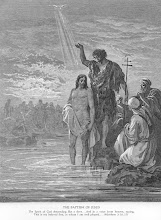General Audience, 22nd February 1984
Often, in the experience of the faithful, it is precisely the obligation to present themselves before the minister of mercy which constitutes a particular difficulty for them. Why, they object, reveal to a man like myself my most intimate circumstances and also my most secret faults? Why, they also object, can I not address God or Christ directly instead of going through the mediation of a man in order to receive the forgiveness of sins?
These and similar questions can seem quite plausible because of the effort which the Sacrament of Penance always asks of us… It is true: the man who absolves is a brother who must also confess in his turn, since, despite his obligation to grow in personal holiness, he remains subject to the limitations of human frailty. The man who absolves, however, does not offer the forgiveness of sins in the name of his own holiness… When he raises his hand in blessing and pronounces the words of absolution, he acts ‘in persona Christi’ – in the person of Christ – not simply as Christ’s representative, but also and above all as a human instrument in which the Lord Jesus – God-with-us - is present and acts.
Homily during Mass at the Phoenix Park, Dublin, September 29th, 1979
In the Sacrament of Reconciliation, we are all invited to meet Christ personally and to do so frequently. This encounter with Jesus is so very important that I wrote in my first Encyclical Letter these words: "In faithfully observing the centuries-old practice of the Sacrament of Penance - the practice of individual confession with a personal act of sorrow and the intention to amend and make satisfaction - the Church is therefore defending the human soul's individual right : man's right to a more personal encounter with the crucified forgiving Christ, with Christ saying, through the minister of the sacrament of Reconciliation : 'Your sins are forgiven' ; 'Go, and do not sin again'". Because of Christ's love and mercy, there is no sin that is too great to be forgiven; there is no sinner who will be rejected. Every person who repents will be received by Jesus Christ with forgiveness and immense love.
Homily, 16th March 1980
The confession boxes of the world in which people bring their sins to light do not proclaim the severity of God, but above all they speak of his merciful goodness. And those who approach the confessional, sometimes after many years and with the weight of serious sins, find the longed-for relief when they go from there; they find the joy and serenity of conscience, which they can find nowhere else but in confession. No-one but God has the power to free us from our sins. And the man who receives such a remission of sin, receives the grace of a new life of the Spirit, which God alone can give him from his infinite goodness.


No comments:
Post a Comment